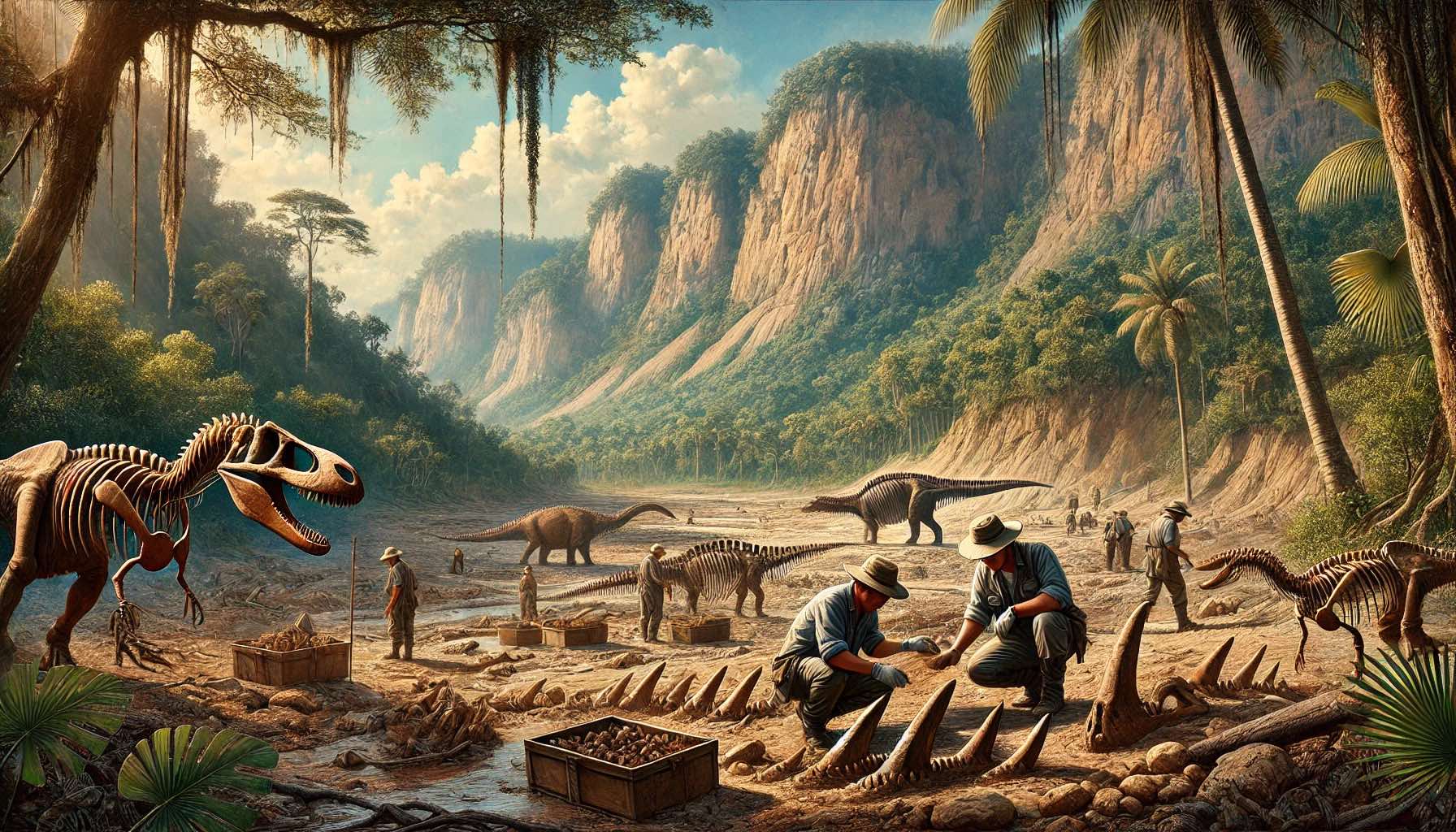Thai Scientists Uncover Rare Tyrannosauroid Fossil in Historic Discovery
Thai paleontologists uncover a rare tyrannosauroid fossil, a major discovery for Southeast Asia, reshaping the understanding of prehistoric life.
A team of Thai paleontologists has identified a tyrannosauroid fossil, marking one of the first such discoveries in Southeast Asia. The fossil, unearthed from the Late Jurassic layers of the Phu Kradung site in northern Thailand, has captivated the scientific community due to its rarity and the insights it offers into the region’s prehistoric ecosystems.
Wongwech Chowchuvech, a paleontologist at Kasetsart University in Bangkok, led the team that identified the fossil, which consists of a set of teeth. Through a detailed morphometric analysis, Chowchuvech confirmed that the specimens belonged to a member of the tyrannosauroid family, a group of bipedal predators that includes the famous Tyrannosaurus rex. However, this newly discovered specimen predates T. Rex by nearly 100 million years and is significantly smaller in size.
The discovery has far-reaching implications, suggesting that tyrannosauroids were more widespread across the ancient supercontinent of Laurasia than previously thought. "This finding is crucial because it fills a gap in our understanding of dinosaur distribution across Laurasia," said Chowchuvech. "It also highlights the potential for more significant discoveries in Southeast Asia, a region that has been largely overlooked in dinosaur research."
For decades, palaeontological research in Southeast Asia has been dominated by foreign institutions, often resulting in a narrow focus on specific research areas, such as archaic human studies in Indonesia. This reliance on foreign expertise has contributed to a "sampling bias" that has skewed our understanding of the region's paleontological history, according to Nussaïbah Raja, a paleontologist at the University of Erlangen-Nuremberg.
However, the tide is turning as local researchers, like Chowchuvech and his mentor Sita Manitkoon from Mahasarakam University, take the lead in exploring Thailand’s rich fossil record. Manitkoon, who has published extensively on Thailand’s dinosaur history, has inspired a new generation of Thai paleontologists to pursue their own research. "We have gained invaluable knowledge and techniques from foreign experts," said Chowchuvech. "Now, we are equipped to conduct our own investigations and contribute to the global scientific community."
The discovery also underscores the importance of decolonizing science, a movement that advocates for locally driven research to address regional priorities and interests. "When local researchers lead the way, their insights and perspectives guide the research," said Raja. "This not only enriches our understanding of prehistoric life but also ensures that the scientific narrative includes diverse voices."
The Thai team’s breakthrough is expected to encourage more local researchers to delve into the region’s dinosaur history, potentially leading to further significant discoveries. "Finding this fossil is just the beginning," said Chowchuvech. "We believe there are many more prehistoric treasures waiting to be uncovered in Southeast Asia."
As Thailand’s paleontologists continue their work, they are not only expanding the fossil record but also reshaping the future of paleontology in Southeast Asia. Their efforts signal a new era of locally led research that promises to unveil the ancient secrets of a region long overlooked in the annals of paleontological study.






